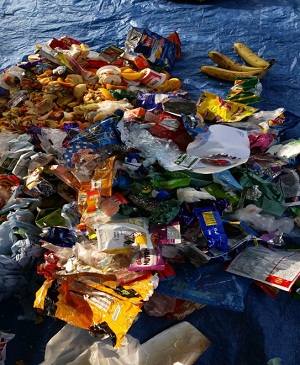Fighting food waste: UN research makes councils re-think school waste policies
Date 13.11.2015

Environmental and Geographical Sciences students from the University of Northampton have recently undertaken a series of resource efficiency audits for local schools, convincing local councils that there is a significant need for food waste collection services.
Fourteen third-year University of Northampton students visited Prince William Secondary School in Oundle, Yelvertoft Primary, Crick Primary and Brington Primary School to complete waste minimisation audits. The data collected by the students has been used to help schools reduce energy consumption and emissions and become examples of good practice.
The student’s reports have persuaded some district and borough councils to look into food waste collection services for schools. One council has already implemented a food waste collection scheme, with three others looking in to it – changes led by the student’s data collection. The audits have shown that the food waste can account for more 50 per cent of the total waste that requires disposal – a significant shift from previous years where the main focus was on paper waste.
Louise Maxwell, Senior Lecturer in Wastes Management, commented: “A key element of the audit assessment process is the application of taught theory in real world scenarios. The audits provide the students with an opportunity to develop their skills, gaining real-life industry experience and enhancing their future employability. The student’s audits have led to significant developments – Northamptonshire County Council are looking to implement a food waste incentive scheme in Schools from September, and other councils are hot on their heels.”
The audits were initially set up to contribute towards a community–focused zero carbon certification scheme, in partnership with Northampton County Council.
For more information regarding the University of Northampton’s courses in environmental sciences, visit the course page.